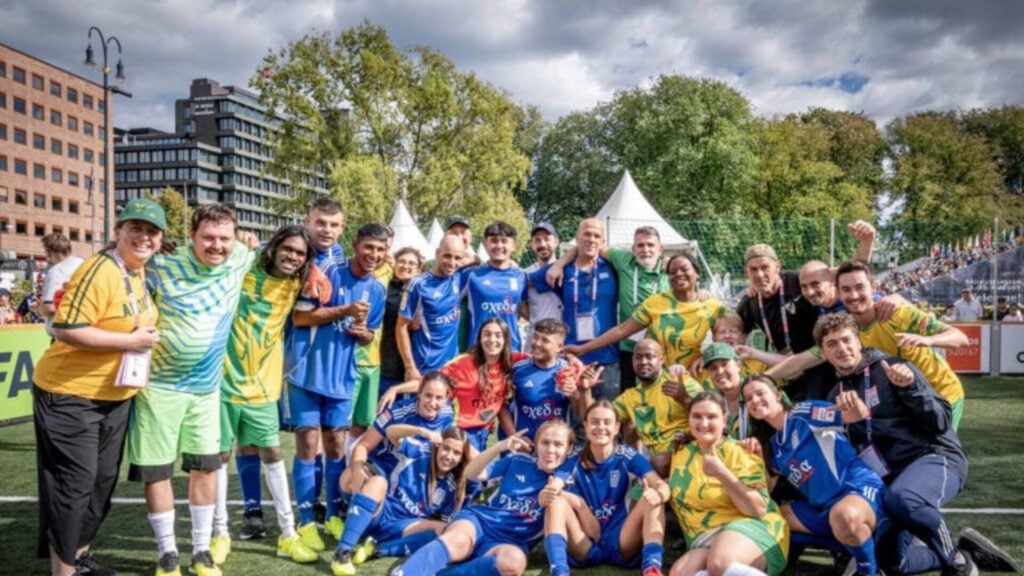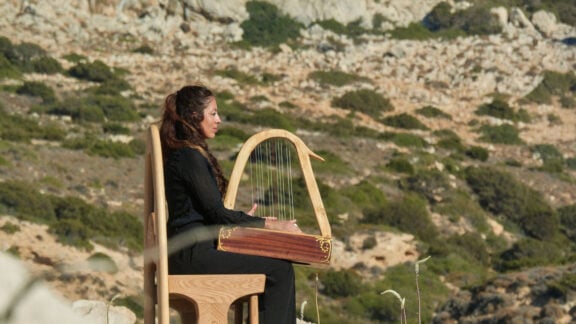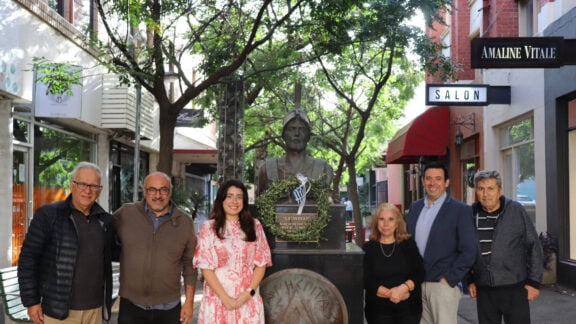While players from Greek clubs battle in UEFA competitions, another group of athletes are chasing victories of a different kind, victories of life. These are the members of Greece’s Homeless National Team, who returned brimming with emotion and energy after taking part in their own World Cup.
This year’s Homeless World Cup was held in Oslo in late August, with 48 nations and 64 teams from across the globe. Greece’s women’s team proudly received the Fair Play Award (FIFPRO Award), adding to a long list of distinctions.
Behind this effort is Christos Alefantis, born in Melbourne to migrant parents from the Peloponnese. A veteran journalist who has also worked in Australia’s Greek community media, Alefantis is the founder and editor-in-chief of Shedia, Greece’s only street magazine, launched in March 2013. He curates its content and coordinates a volunteer editorial team.
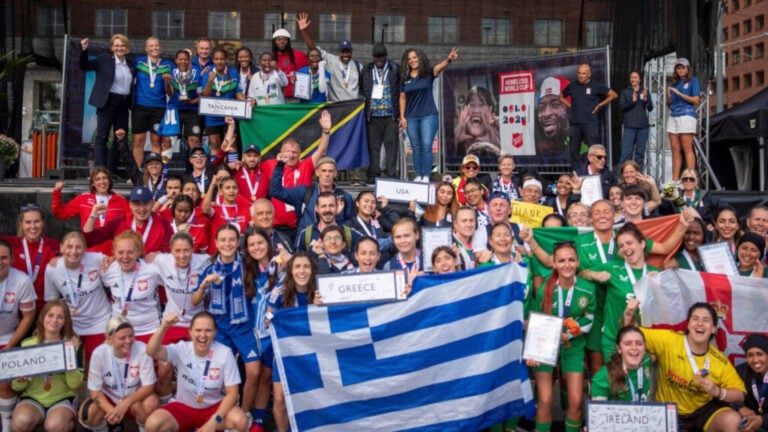
In 2006, he also initiated the campaign “Goal Against Poverty”, which introduced the Homeless National Team of Greece, a social project using football as a tool for empowerment and reintegration of people facing poverty and social exclusion.
Greece has become the most awarded nation in the Homeless World Cup’s Fair Play category, collecting nine honours in 15 appearances, including at the last three tournaments (Sacramento 2023, Seoul 2024, Oslo 2025). In Oslo, the women’s team finished 13th overall, while the men’s squad ranked 27th out of 40 countries. Egypt won the men’s tournament and Uganda the women’s — making it an all-African affair.
For ten days in Oslo, young players from Athens, Thesprotia, Thessaloniki, Crete, and Pieria lived, played, and connected with hundreds of others from around the world, uniting smiles, talents, and voices against exclusion and poverty.
The next Homeless World Cup will be held in Mexico City in October 2026, and Greece will be there again.
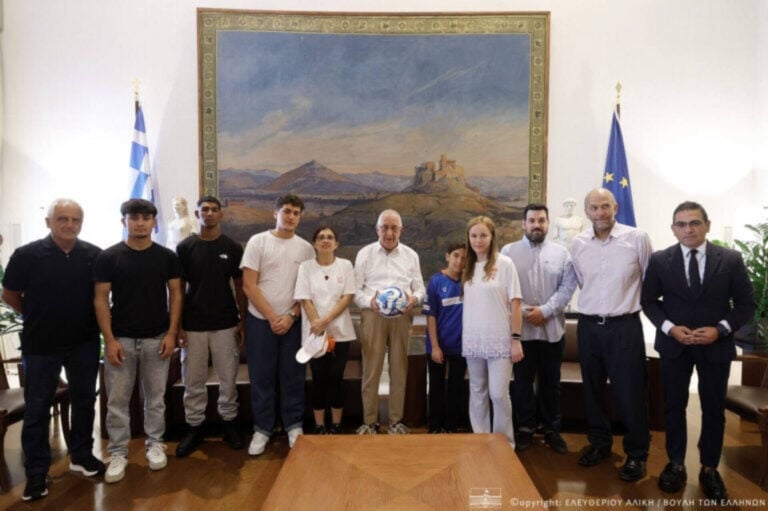
Messages of hope
Participants described the experience as transformative. “Generally, I feel anxious in my life, but in Oslo it disappeared,” said Kostas K., one of the Greek players. “We built solidarity among us. Even though I don’t speak English well, I could still connect with people from all over the world with hugs, with the language of the body.”
Others, like Angeliki N., who played in the 2019 tournament in Wales, said the team gave them a “compass for life” and helped heal emotional wounds.
Recognition in Parliament
Just hours after returning from Norway, the Greek delegation was received by Parliament Speaker Nikitas Kaklamanis, who promised his full support:
“You will have the backing of Parliament in whatever you need, both morally and practically. I believe all parties will support your effort.”
The visit included a tour of Parliament, hosted by the New Left party. Its president Alexis Haritsis and MPs Peti Perka and Sia Anagnostopoulou attended, later urging society to embrace an initiative that “gives voice and hope to those striving for a better life.”
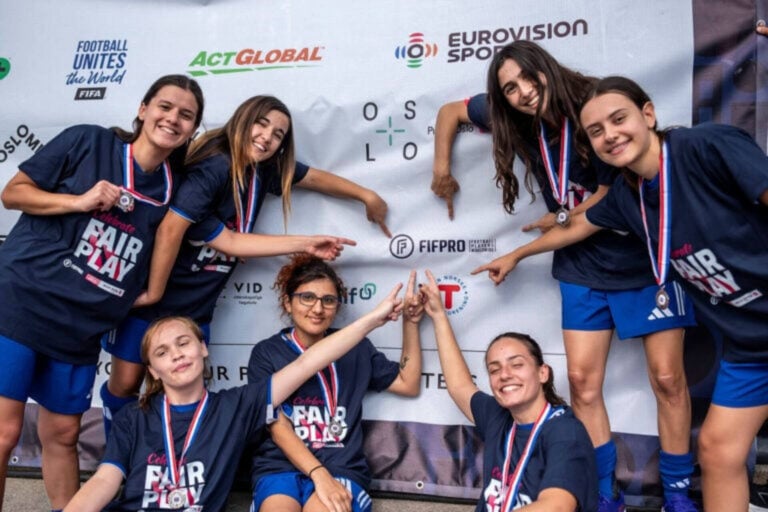
A new season ahead
The Homeless National Team is represented in Greece by Shedia, which will soon announce its full programme of social street football for the 2025–26 season. Training begins mid-October in Athens and Thessaloniki.
In Athens, sessions will be held every Sunday at the Rouf Stadium, the long-standing base of Shedia’s football programme since its inception in 2007. The Thessaloniki venue will be confirmed shortly.
The Oslo campaign was supported by the Hellenic Football Federation, the Ministry of National Defence, the Ministry of Macedonia and Thrace, Aegean Airlines and adidas.
